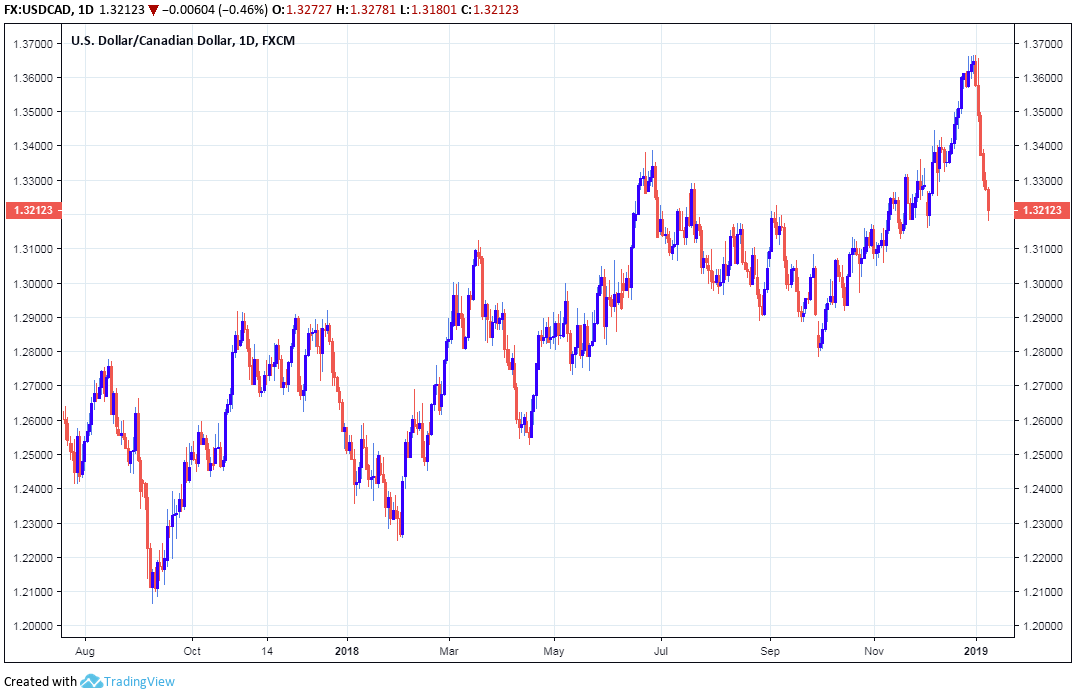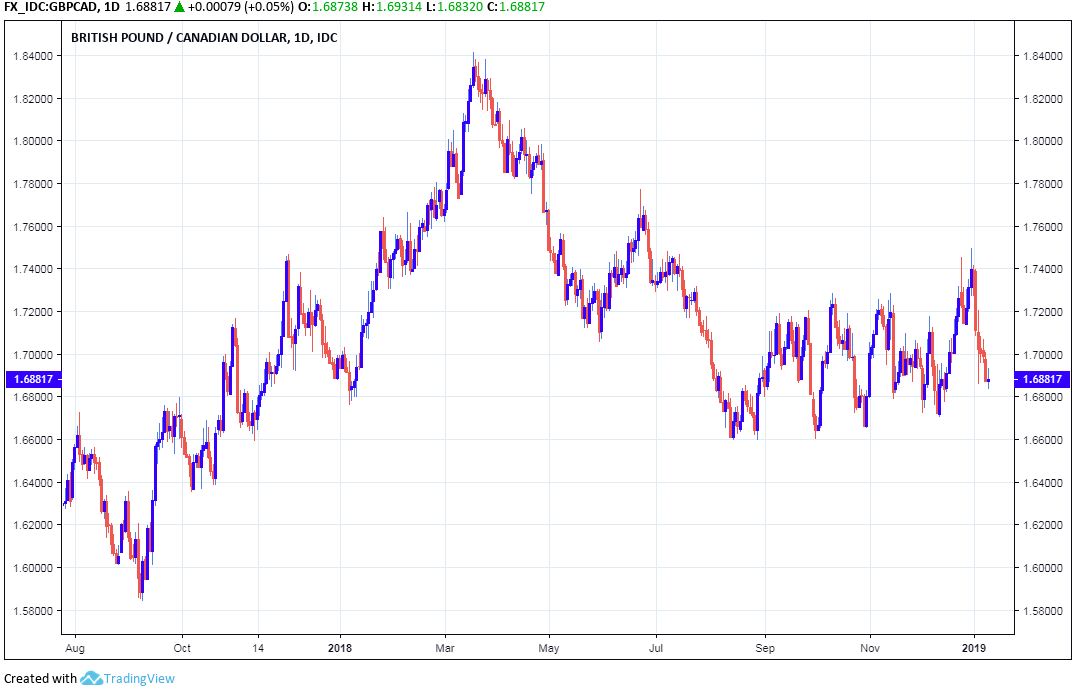Canadian Dollar Melts after BoC Takes Itself "Out of the Rate Hike Game"
- Written by: James Skinner

Image © Bank of Canada, Reproduced Under CC Licensing
- CAD cedes ground to rivals after BoC completes policy retreat.
- BoC has taken itself "out of the rate hike game" says CIBC.
- After trade war and oil fears return to haunt policymakers.
The Canadian Dollar ceded ground to rivals Wednesday after the Bank of Canada (BoC) confirmed that earlier guidance suggesting it would raise interest rates aggressively this year has effectively been thrown in the bin by policymakers during recent weeks.
The Bank of Canada held its interest rate steady at 1.75% Wednesday, in line with expectations, but left a significant question mark hanging over the outlook for monetary policy through the rest of 2019.
BoC officials say inflation will dip below the 2% target for much of 2019 before returning to target in time for year-end. The core measures, which exclude gasoline and other volatile items from the price basket, are also seen remaining close to the 2% threshold.
However, and despite that consumer price growth is set to remain close to the target level, the bank indicated clearly that it will be much more cautious about raising interest rates going forward than earlier guidance had suggested it would. Wednesday's message is it will move much more slowly than before.
"The Bank of Canada has taken itself out of the rate hike game, and its message today suggests that it isn't quite as sure about when it will come off the sidelines and hike again," says Avery Shenfeld, chief economist at Toronto-headquartered CIBC Capital Markets. "The rate message wasn't that they were done for good, but rather, that the timing will be a bit more extended."
President Donald Trump's so-called trade war with China, as well as potential damage to Canada's economy coming from a recent bust in the oil market, were the bank's foremost concerns.
The BoC says that with global oil prices down some 30% in recent months and Canada's own benchmark barely up from record lows, business investment in the oil sector will weaken further this year and household spending in oil producing provinces will come under pressure.
Those concerns prompted BoC officials to insert the words "over time" into their guidance about interest rates eventually rising to within the so-called "neutral range", which is estimated to be between 2.5% and 3.5%.
The bank said; "The appropriate pace of rate increases will depend on how the outlook evolves, with a particular focus on developments in oil markets, the Canadian housing market, and global trade policy."
Markets care about the BoC decision and guidance because of the push and pull influence that changes in rates can have on international capital flows, as well as their allure for short-term speculators. Interest rate decisions are normally only taken in response to movements in inflation.
"The Bank was careful to note that the economy had been performing well outside the oil sector," says Robert Both, a macro strategist at Toronto-headquartered TD Securities. "We still expect the overnight rate to reach 2.50% by January 2020, but the more cautious forward looking guidance suggests that a hike in March is unlikely."

Above: USD/CAD rate shown at daily intervals.
The USD/CAD rate was quoted -0.07% lower at 1.3241 following the announcement, although this was more the result of a weak U.S. Dollar than it was a strong Loonie, while the Pound-to-Canadian-Dollar rate -0.04% lower at 1.6861 despite much steeper losses against other currencies for Sterling.
Canada's Dollar had been a touch higher against all G10 currencies other than the New Zealand and Australian Dollars ahead of the release Wednesday, but was quoted lower against around half the basket in the aftermath of the announcement. The overall change was fractional though.

Above: Pound-to-Canadian-Dollar rate shown at daily intervals.
"There were no fireworks from the BoC, keeping the focus broadly on the sagging USD and the BoC did little to deter the market from pushing USDCAD lower. The break of 1.32 opens up a test of the 100dma around 1.3180 in line with our expectations. We also maintain our upbeat tone on CAD crosses like JPY and CHF," says Mark McCormick, head of FX strategy at TD Securities.
The RBC Capital Markets team are betting on a decline of the Pound-to-Loonie rate to 1.6670 this week, for reasons relating to the Bank of Canada and state of the Brexit process in the UK.
The Bank of Canada raised its interest rate by 25 basis points to 1.75% in October and told markets the overnight rate will need to go all the way up to "neutral", which it estimates to be between 2.5% and 3.5%.
Canadian rate setters also dropped their long-held commitment to hiking in only a "gradual" manner, triggering a broad rally by the Loonie at the tim, given the assumtion that inflation would remain close to the 2% target until the at least the end of 2020 and both the Canadian and U.S. economies would continue growing at a healthy clip.
But the bank began to back away from that guidance in December following a series of disappointing economic figures and a rout in oil prices that saw Brent crude swap a near 20% gain for a 10% annual loss in the final months of the year. It completed its retreat from that earlier position Wednesday.
Canadian oil prices fell to new record lows repeatedly in 2018, prompting the Alberta government to require production cuts as of January 2019 that may end up denting economic growth this quarter.
Fears over the health of the U.S. and Chinese economies, as well as the likely impact President Donald Trump's so-called trade war might yet have on global growth, have led markets to check their expectations of asset prices and economies the world over in recent weeks.
Canada has been no exception in that since the beginning of November markets have gone from anticipating between two and three BoC rate hikes for 2019, to betting the central bank will not raise interest rates at all this year.
Advertisement
Bank-beating exchange rates. Get up to 5% more foreign exchange by using a specialist provider to get closer to the real market rate and avoid the gaping spreads charged by your bank when providing currency. Learn more here




